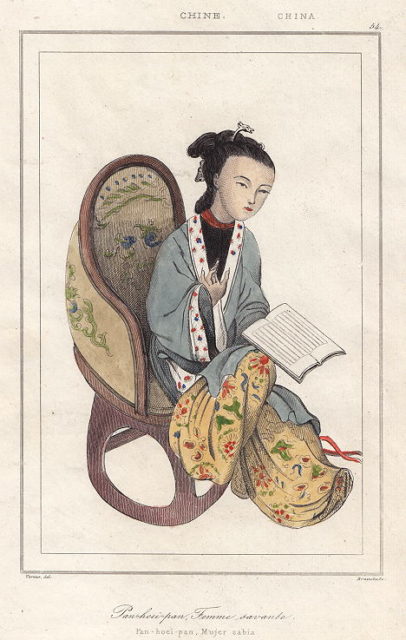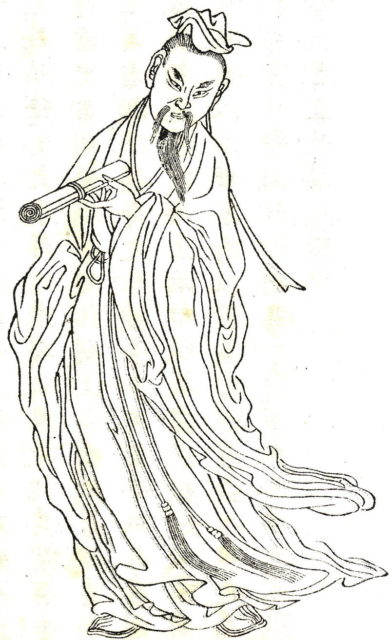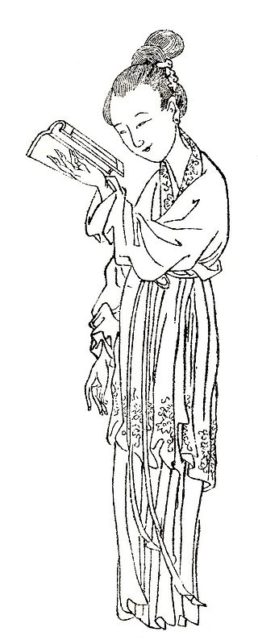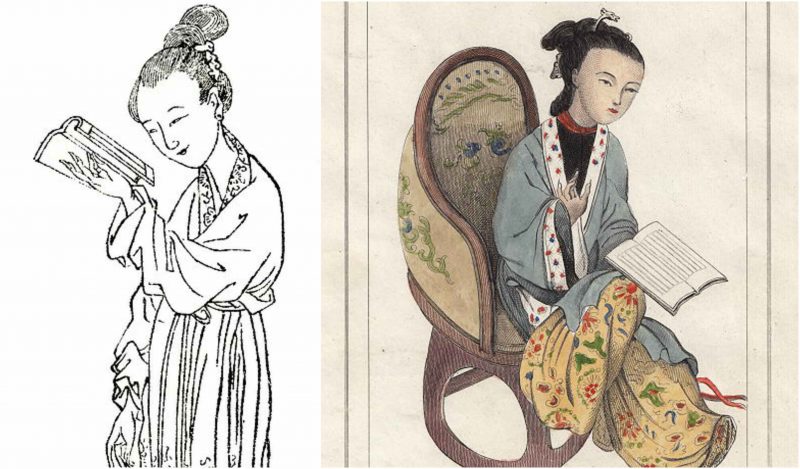Ban Zhao was born in 45 AD and was a writer, a poet, and is the first known female Chinese historian. She also had a deep interest in mathematics and astronomy. She was born in a prominent Chinese family and was home educated by her mother. At the age of 14, she married a local resident, Cao Shishu, who unfortunately died after a few years.

After the death of her husband, she moved with her brother Ban Gu and devoted herself to raising her children and to literature. At the time, her brother was completing their father’s work on the history of the Han Dynasty – “the Book of Han.” Ban Gu was convicted for involvement in palace fraud and was executed in 92 AD. Five years later, Ban Zhao was appointed by the Emperor to take over the authorship of the book.

While working for the Emperor, she also tutored other scholars how to read the texts; she was a teacher in the Dongguan Library, on the language of the Han Shu, and had access to all the books in the Dongguan Imperial Library. The Emperor appointed her to be the teacher of all members of his family, who called her “Cao Dagu”.
Besides the History of the Han, which is one of the best-known histories ever written and the model for all future dynastic histories in China, Zhao also wrote the Confucian moralistic book Lessons for Women. In it, she teaches women to obey literature and their husbands, brothers, fathers etc.
According to her, “Nothing is better than obedience which sacrifices personal opinion.” In her opinion (considering the cultural frame of the time she lived in) if a woman acts with wisdom and obedience she can become a powerful old woman.

Among her students was Empress Deng Sui, who favored Zhao and granted her political power. Zhao became the empress’ lady-in-waiting, and also, the empress made Zhao’s sons officials. As Zhao was also responsible for the library, she managed to rearrange and enlarge it. It is possible that she supervised the copying of manuscripts from bamboo slips and silk onto a recently invented material, paper.
Zhao accompanied her son, Cao Gu, to Chenliu County, where he was appointed as an official. She died in Chenliu County and was deeply mourned by the Empress.
